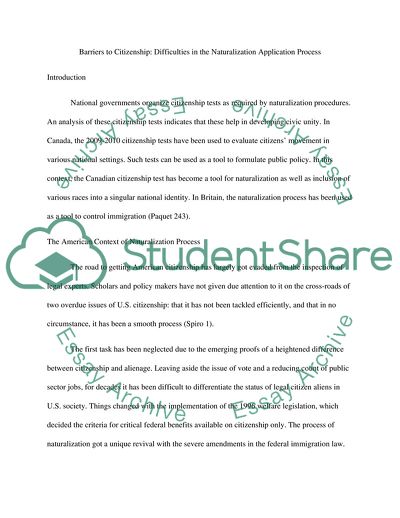Cite this document
(Barriers to Citizenship: Difficulties in the Naturalization Term Paper, n.d.)
Barriers to Citizenship: Difficulties in the Naturalization Term Paper. https://studentshare.org/social-science/1778639-barriers-to-citizenship-difficulties-in-the-naturalization-application-process
Barriers to Citizenship: Difficulties in the Naturalization Term Paper. https://studentshare.org/social-science/1778639-barriers-to-citizenship-difficulties-in-the-naturalization-application-process
(Barriers to Citizenship: Difficulties in the Naturalization Term Paper)
Barriers to Citizenship: Difficulties in the Naturalization Term Paper. https://studentshare.org/social-science/1778639-barriers-to-citizenship-difficulties-in-the-naturalization-application-process.
Barriers to Citizenship: Difficulties in the Naturalization Term Paper. https://studentshare.org/social-science/1778639-barriers-to-citizenship-difficulties-in-the-naturalization-application-process.
“Barriers to Citizenship: Difficulties in the Naturalization Term Paper”. https://studentshare.org/social-science/1778639-barriers-to-citizenship-difficulties-in-the-naturalization-application-process.


